We are currently in the middle of the largest rescue we have ever done, and one of the largest food recovery efforts in history.
Over the last six weeks, we took on a massive challenge. When all of their contracts were dropped right before harvest, 11 apple growers in West Virginia faced enormous losses and potential bankruptcy. Millions of pounds of apples suddenly had no buyers, and nowhere to go. Farmers faced a situation many of them had never anticipated: their crop was going to go to waste.

A chance encounter between Senator Manchin and one of our farmer heroes provided a glimmer of hope. After learning about the precarious position these farmers were in, Senator Manchin brought together the USDA and West Virginia Department of Agriculture to rally financial support for farmers to harvest the apples. There was one condition: the apples must be donated to hunger fighting charities. However, the compensation package did not cover all harvesting, packaging, transportation, and delivery costs of the apples; that's where Farmlink stepped in.
.png)
We faced a challenge we could never have imagined: ‘can Farmlink rescue and deliver 16 million pounds of apples, directly from farms, to hunger fighting charities in less than two months?’
We weren’t sure if we could do it. But our scrappy optimism that is so tightly wound into Farmlink’s DNA meant we had to try. We delivered the first truck load of apples on September 29th.
With each day, we find out we are capable of much much more than we ever thought…
We’ve crunched the numbers and predict that to recover all available apples will cost Farmlink nearly 1 million dollars. The impact of this recovery will have profound implications for the farmers involved, the recipient communities, and Farmlink’s future work with local, state and federal governments to lend support.
To rescue the remaining apples and prepare for future opportunities to support farmers and feed families, we turn to you: our community in this fight against hunger and waste. We’re a couple hundred truckloads down, with many more to go.
< Back
We are currently in the middle of the largest rescue we have ever done, and one of the largest food recovery efforts in history.
Over the last six weeks, we took on a massive challenge. When all of their contracts were dropped right before harvest, 11 apple growers in West Virginia faced enormous losses and potential bankruptcy. Millions of pounds of apples suddenly had no buyers, and nowhere to go. Farmers faced a situation many of them had never anticipated: their crop was going to go to waste.

A chance encounter between Senator Manchin and one of our farmer heroes provided a glimmer of hope. After learning about the precarious position these farmers were in, Senator Manchin brought together the USDA and West Virginia Department of Agriculture to rally financial support for farmers to harvest the apples. There was one condition: the apples must be donated to hunger fighting charities. However, the compensation package did not cover all harvesting, packaging, transportation, and delivery costs of the apples; that's where Farmlink stepped in.
.png)
We faced a challenge we could never have imagined: ‘can Farmlink rescue and deliver 16 million pounds of apples, directly from farms, to hunger fighting charities in less than two months?’
We weren’t sure if we could do it. But our scrappy optimism that is so tightly wound into Farmlink’s DNA meant we had to try. We delivered the first truck load of apples on September 29th.
With each day, we find out we are capable of much much more than we ever thought…
We’ve crunched the numbers and predict that to recover all available apples will cost Farmlink nearly 1 million dollars. The impact of this recovery will have profound implications for the farmers involved, the recipient communities, and Farmlink’s future work with local, state and federal governments to lend support.
To rescue the remaining apples and prepare for future opportunities to support farmers and feed families, we turn to you: our community in this fight against hunger and waste. We’re a couple hundred truckloads down, with many more to go.
Rescuing 16 Million lbs of Apples
West Virginia
We are currently in the middle of the largest rescue we have ever done, and one of the largest food recovery efforts in history.
Over the last six weeks, we took on a massive challenge. When all of their contracts were dropped right before harvest, 11 apple growers in West Virginia faced enormous losses and potential bankruptcy. Millions of pounds of apples suddenly had no buyers, and nowhere to go. Farmers faced a situation many of them had never anticipated: their crop was going to go to waste.

A chance encounter between Senator Manchin and one of our farmer heroes provided a glimmer of hope. After learning about the precarious position these farmers were in, Senator Manchin brought together the USDA and West Virginia Department of Agriculture to rally financial support for farmers to harvest the apples. There was one condition: the apples must be donated to hunger fighting charities. However, the compensation package did not cover all harvesting, packaging, transportation, and delivery costs of the apples; that's where Farmlink stepped in.
.png)
We faced a challenge we could never have imagined: ‘can Farmlink rescue and deliver 16 million pounds of apples, directly from farms, to hunger fighting charities in less than two months?’
We weren’t sure if we could do it. But our scrappy optimism that is so tightly wound into Farmlink’s DNA meant we had to try. We delivered the first truck load of apples on September 29th.
With each day, we find out we are capable of much much more than we ever thought…
We’ve crunched the numbers and predict that to recover all available apples will cost Farmlink nearly 1 million dollars. The impact of this recovery will have profound implications for the farmers involved, the recipient communities, and Farmlink’s future work with local, state and federal governments to lend support.
To rescue the remaining apples and prepare for future opportunities to support farmers and feed families, we turn to you: our community in this fight against hunger and waste. We’re a couple hundred truckloads down, with many more to go.
.png)

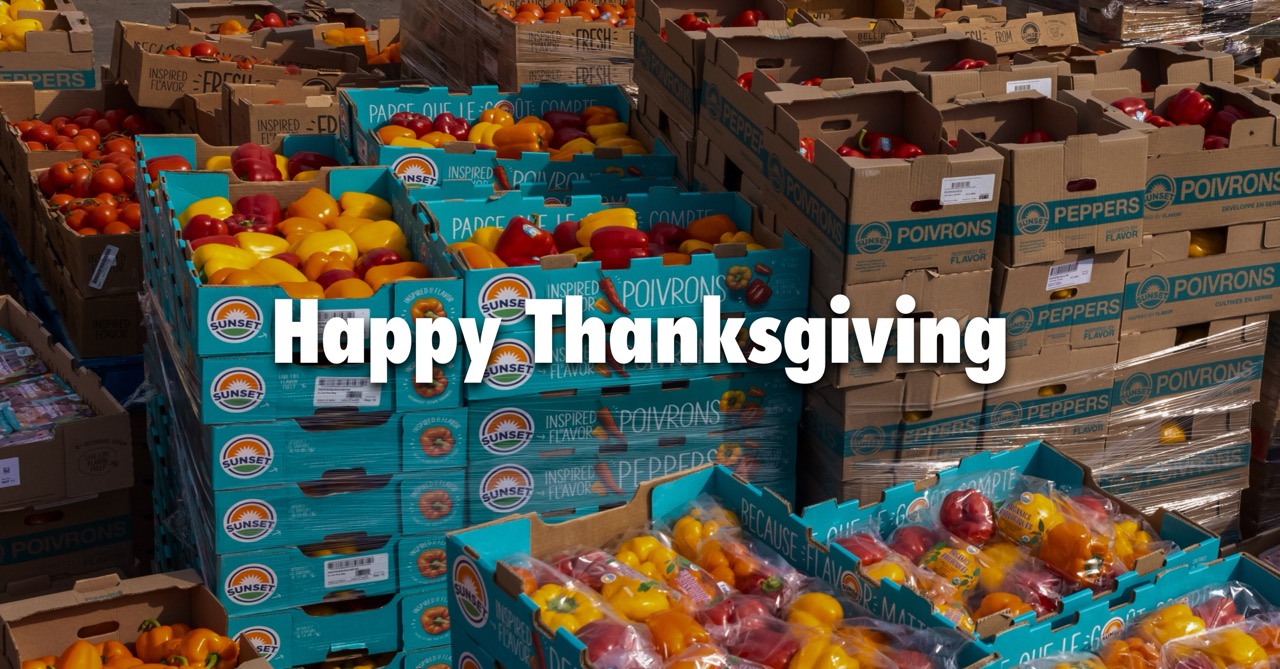
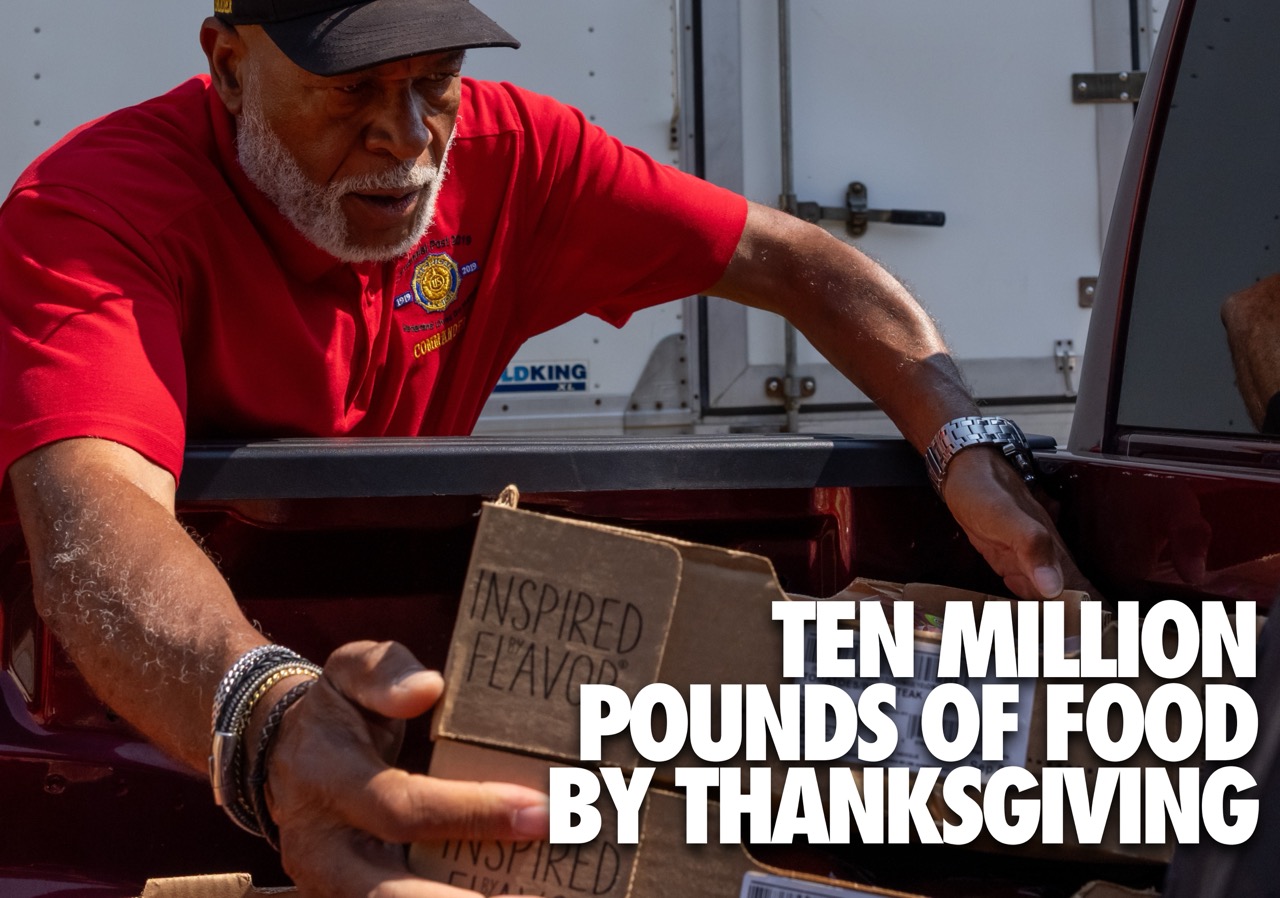
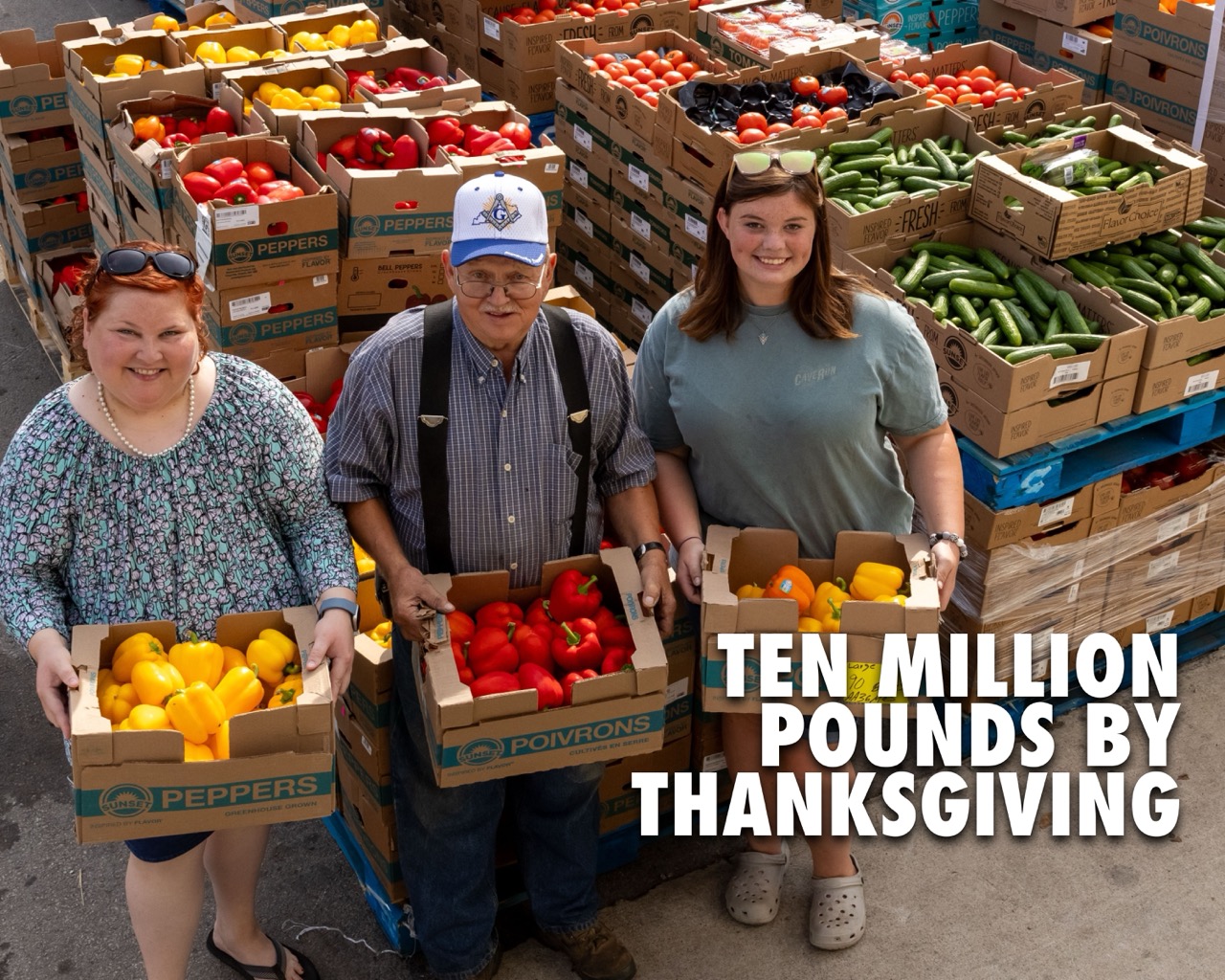
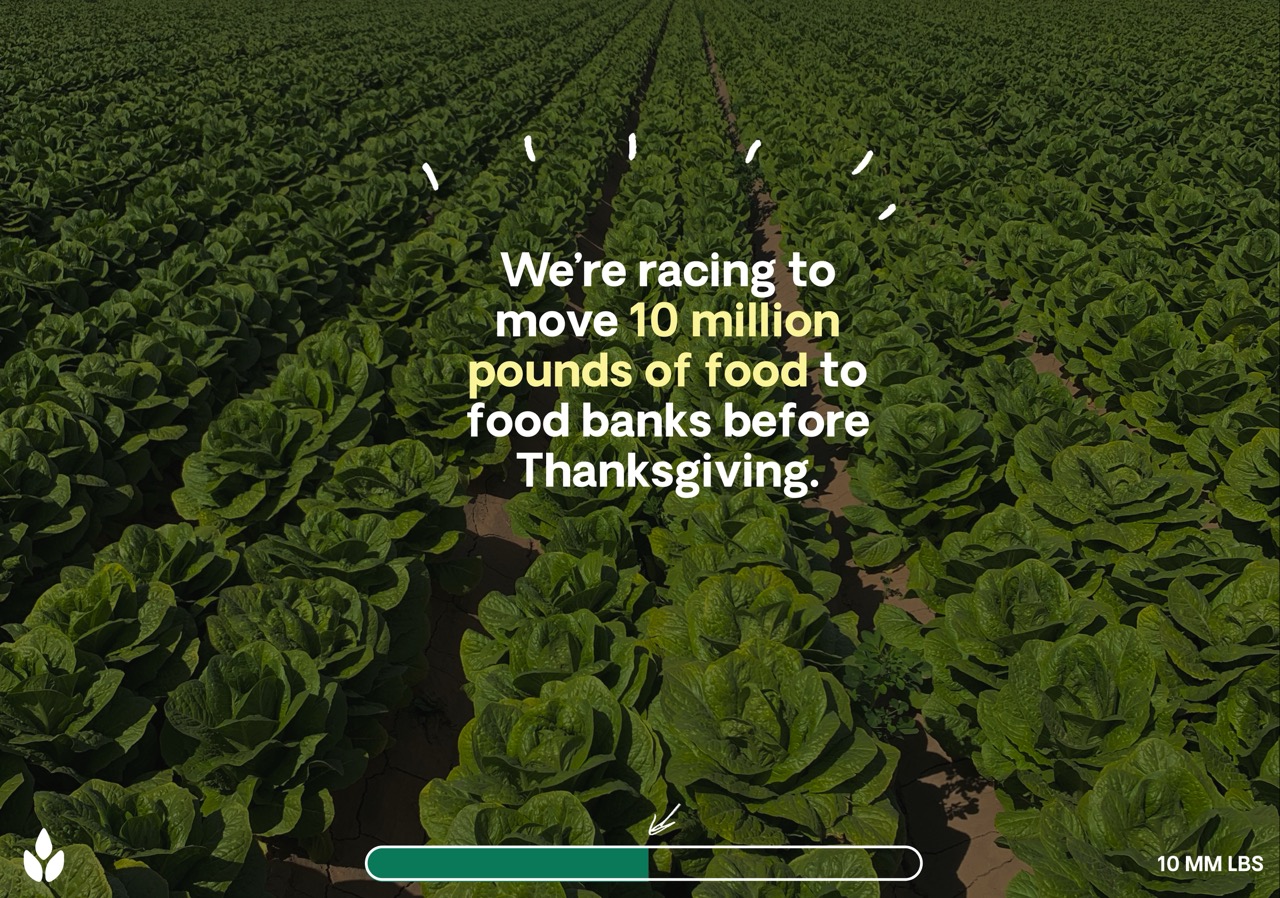
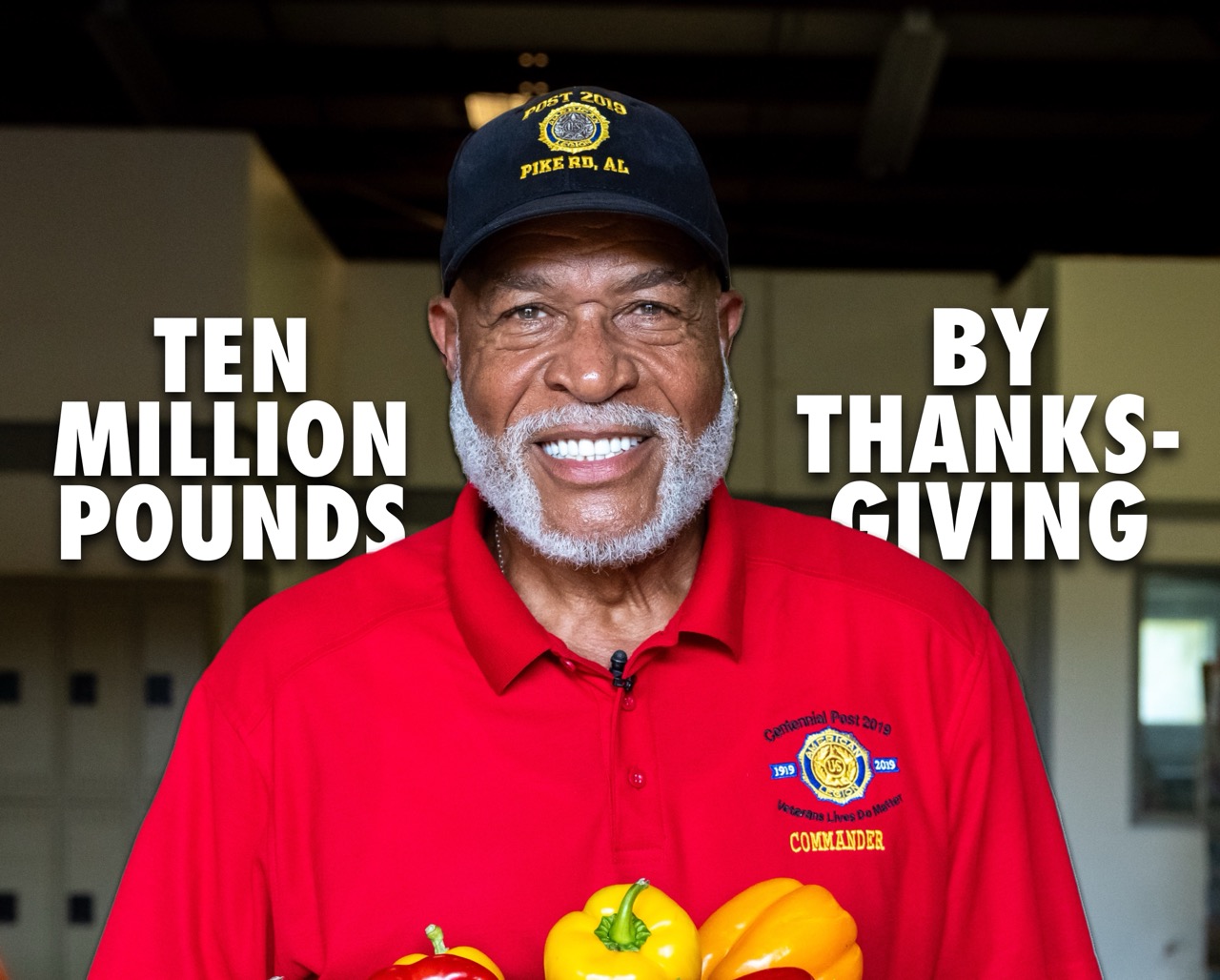
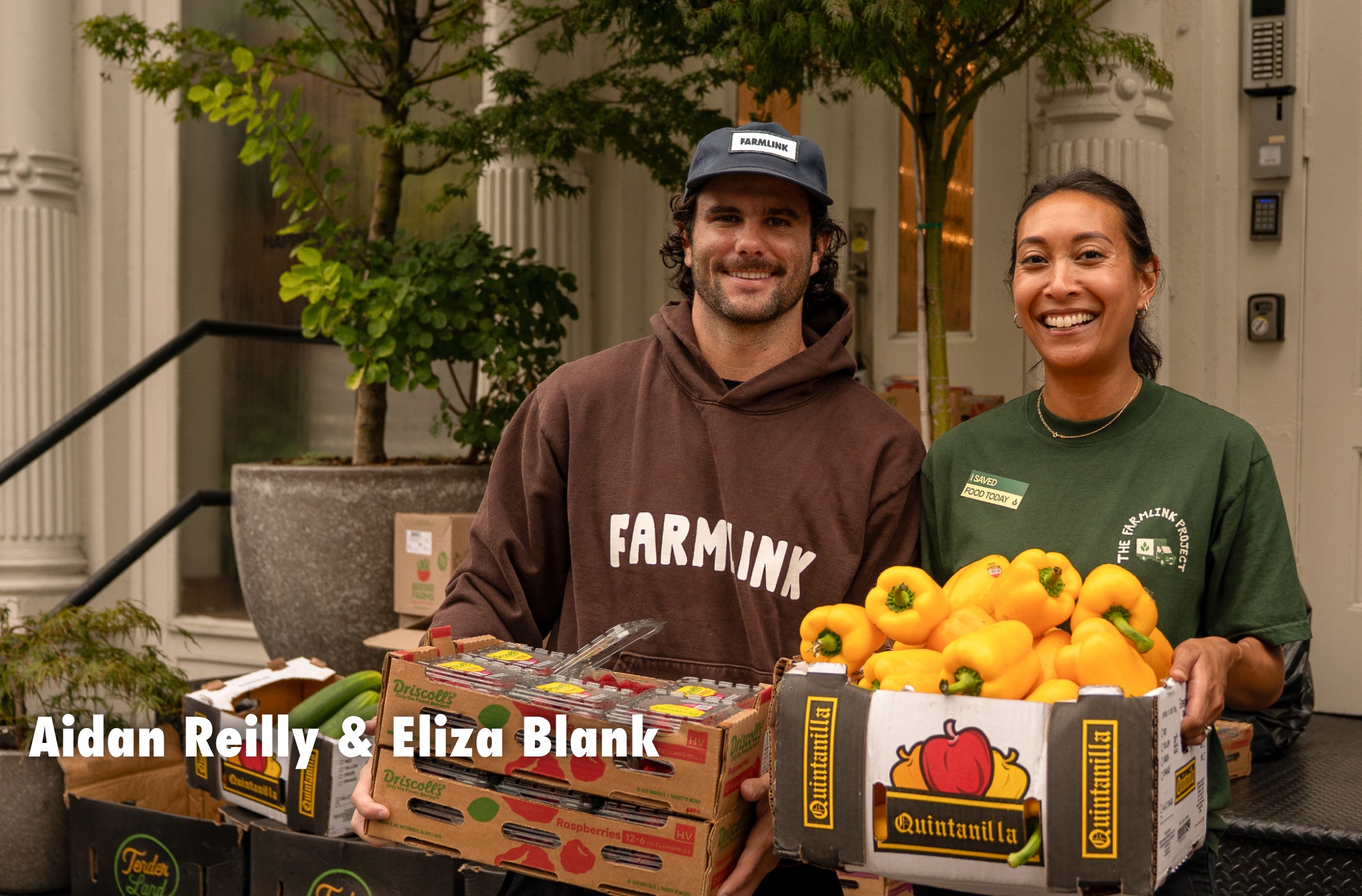
.svg)
.svg)
.svg)